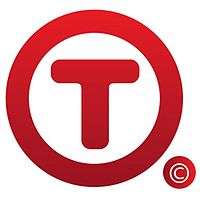Tabbles
Tabbles is a relational file manager, running on Windows systems. The name "Tabbles" is portmanteau of tag and bubbles.
 | |
| Developer(s) | Yellow blue soft |
|---|---|
| Initial release | 1 August 2009 |
| Stable release |
3.1.28
/ 15 May 2016 |
| Development status | Active |
| Written in | F# |
| Operating system | |
| Type | Productivity software |
| License | Proprietary |
| Website |
tabbles |
Overview
Tabbles generates in real-time a tag-based relational file system, where tags can be accessed as folders or used as keywords for search. It supports any kind of files and documents on local and shared drives, as well as many cloud storage or file synchronization systems. Tabbles allows users to collaboratively tag files on network drives, through group and user policy management.
Data management model
Tabbles implements a relational approach to file and data management, as an extension to the traditional file management being hierarchically structured, similar to Microsoft's WinFS. Files, emails and bookmarks are categorized by labeling them with tags, instead of placing them in hierarchical folders or containers. The data is then browsed, sorted and retrieved by navigating and searching through tags, or combination of tags. Tags are visualised and browsed as virtual folders. A relational file system is generated dynamically, independently from the physical location of the data. This allows for files or emails physically stored in different folders or machines, to be grouped and browsed together at once.
Technology
Tabbles was among the first commercial software developed in F# and WPF,[1] and was featured on F# creator's blog.[2] It has a client-server architecture, requires a Microsoft SQL Server to run and relies on stored procedures for the core logic and the security management. Tabbles is tightly integrated with Windows and Windows Explorer using several APIs: FileSystemWatcher, IFileOperationProgressSync, Overlay Handlers, ContextMenu Handlers, Win32 API, Office interop, Outlook interop.[3] It uses VSTO to integrate into Microsoft Outlook.
Features
- Tagging files in local folders, network drives, removable drives, optical disks
- Auto-tagging files and folders, local and remote, based on user defined rules
- Tagging files from the application's GUI, Windows Explorer, from 3rd party file managers,[4] from command line and via APIs
- Tags on files and folders managed by file synchronization tools (such as Dropbox) are synchronized
- User and groups privileges for tagging on shared folder and network drives
- Graphically browse through single tags or combinations, as if in virtual folders
- Tag emails (in Microsoft Outlook[5]) and bookmarks
- Administrator management window for user and groups creation and management
Reviews
Tabbles received multiple reviews, among others from the Washington Post,[6] Lifehacker,[7] Chip[8] and several paper magazines. Reviews were typically mildly positive and focused on the innovative side of the application.
See also
References
- ↑ "Henrik Westergaard on Twitter". Retrieved 2016-08-06.
- ↑ "Tabbles: Organize Your Files. Written in F#". Retrieved 2016-08-06.
- ↑ "How to have large file icons with SHGetFileInfo in C# | Tabbles". tabbles.net. Retrieved 2016-08-06.
- ↑ "3.1.11: Support for alternate file managers, usability improvements, speedups, and bugfixes | Tabbles". tabbles.net. Retrieved 2016-08-06.
- ↑ "Tabbles 3 is here! | Tabbles". tabbles.net. Retrieved 2016-08-06.
- ↑ Harac, Ian (2010-05-23). "Tabbles Free Gives You a New Way to Tag and Find Files". The Washington Post. ISSN 0190-8286. Retrieved 2016-08-06.
- ↑ Purdy, Kevin. "Tabbles Tags and Groups Your Files with Virtual Folders". Retrieved 2016-08-06.
- ↑ "Tabbles: Innovativen Explorer-Ersatz herunterladen". Retrieved 2016-08-06.
External links
| Wikimedia Commons has media related to Tabbles. |